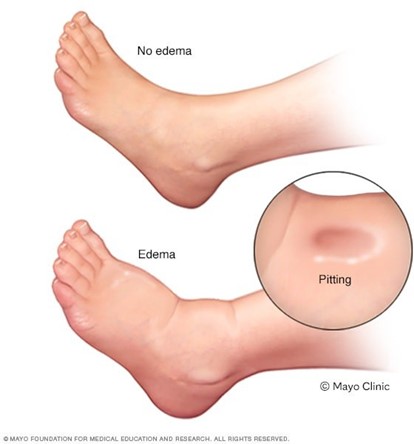A nurse is caring for a client who has cancer. The client tells the nurse, "I would prefer to try vitamins and minerals instead of chemotherapy." Which of the following responses should the nurse make?
"You should ask your provider about your plan.".
"Tell me what you know about chemotherapy.".
"I have never heard of any holistic treatment that is effective.".
"The best way to treat your cancer is chemotherapy.".
The Correct Answer is B
- A. "You should ask your provider about your plan." This response is appropriate because it acknowledges the client's desire to explore alternative treatments while directing them to the appropriate source for medical advice. It promotes client autonomy and ensures they receive accurate information from their healthcare provider.
- B. "Tell me what you know about chemotherapy." This response is also appropriate. It encourages the client to express their understanding and concerns about chemotherapy, allowing the nurse to identify any misconceptions and provide accurate information. This also opens the door for the client to express their concerns about vitamins and minerals, and why they want to persue that treatment.
- C. "I have never heard of any holistic treatment that is effective." This response is inappropriate because it dismisses the client's preferences and demonstrates a lack of respect for their autonomy. It also displays a lack of knowledge, as some holistic treatments can be used as supportive therapies.
- D. "The best way to treat your cancer is chemotherapy." This response is inappropriate because it is directive and does not allow the client to participate in decision-making. It also does not address the client's desire to explore alternative treatments.
Nursing Test Bank
Naxlex Comprehensive Predictor Exams
Related Questions
Correct Answer is D
Explanation
Initiate a referral for the client to a home health agency.
This action demonstrates client advocacy because it empowers the client to continue self-care at home while also providing them with additional support and resources through the home health agency.
Choice A is wrong because avoiding large crowds of people is a precautionary measure but does not demonstrate client advocacy.
Choice B is wrong because avoiding raw vegetables is a dietary recommendation but does not demonstrate client advocacy.
Choice C is wrong because reminding the client of the importance of medication adherence is important but does not demonstrate client advocacy.
Correct Answer is A
Explanation

Edema, or swelling in the legs, is a common symptom of venous disease.
Hair loss distal to the client’s calves (choice B) is not a typical symptom of venous vascular disorder.
Leg pain at rest (choice C) can be a symptom of peripheral vascular disease but is not specific to venous vascular disorder.
An ulcer on the tip of a toe (choice D) can be a sign of arterial vascular disorder but is not specific to venous vascular disorder.
Whether you are a student looking to ace your exams or a practicing nurse seeking to enhance your expertise , our nursing education contents will empower you with the confidence and competence to make a difference in the lives of patients and become a respected leader in the healthcare field.
Visit Naxlex, invest in your future and unlock endless possibilities with our unparalleled nursing education contents today
Report Wrong Answer on the Current Question
Do you disagree with the answer? If yes, what is your expected answer? Explain.
Kindly be descriptive with the issue you are facing.
